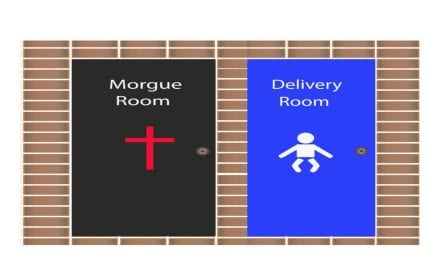Some number of days ago Dan Hutson of Cornerstone Affiliates posted on Facebook an article from marketing week.
By Steve Moran
Some number of days ago, Dan Hutson of Cornerstone Affiliates posted on Facebook an article from Marketing Week online titled “Why Storytelling is Dead.”
I thought “Really?”
“Nah”
“Is this possibly true?”
The article is authored by Mastercard’s CMO Raja Rajamannar. His big idea is that today’s consumers have largely moved away from buying things and are now mostly looking for experiences.
So far so good . . .
Except I would argue that, in reality, they have been selling experience by using storytelling for the last twenty years. And, I promise one of two things will happen.
-
The new campaign will fall flat on it’s face . . . don’t bet on this one.
-
The new campaign will be full of stories about people using their Mastercard to create experiences worth . . . are you ready for it . . . telling stories about.
Getting Past the Gobbledygook
(I love the word “gobbledygook” and I am pleased this article allows me to use it.)
Yet for all of the double talk, the idea of selling experiences has great potential for senior living. Today with all the talk about our luxury senior living offerings, we are still primarily selling care, safety and security. It then becomes an . . . “and by the way, we also have all these cool amenities and life enrichment activities.” The big problem is that we pretend they are cool and great experiences but with rare exceptions most of us would NEVER do them in our spare time.
Real Experiences
The two big questions that need to be asked with candor are these:
-
What do senior adults do in their lives that give them meaning, purpose, pleasure and happiness?
-
If they were to dream big about things they would like to do but haven’t yet, what would those things be?
There are a whole bunch of reason why we don’t seriously dig into these questions. The first is the reality that many of our residents, prior to moving into our communities, didn’t really do much. They went to church, fixed simple meals, ate out occasionally and watched a lot of television.
This is reality but not a very sexy or compelling sales pitch. Can’t you just imagine your salesperson trying to sell your community on the idea that it is a great place to watch TV all day.
The second question is almost harder . . .
It is in reality asking someone who is heading toward the end of their life, what is on their bucket list. A version of “you are gonna die, what do you want to do before you do?” Making this second question even more complicated is that once you ask it you are kind of obligated to try to make it happen, which may be impractical, expensive or impossible.
And Yet . . .
It seems to me that we could be purposeful about creating an experience-rich reality for our seniors.








